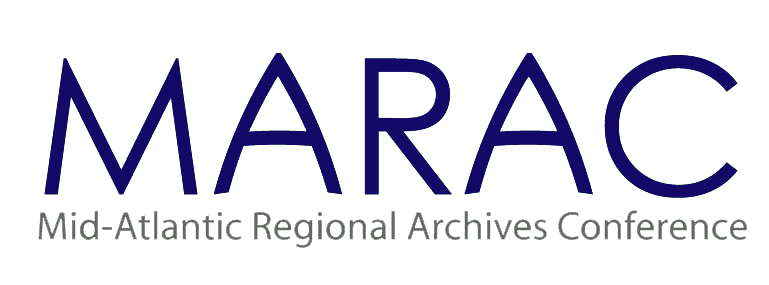MARAC ADVOCACY: LETTERS AND RESOLUTIONS, 2020MARAC Statement on Black Lives Matter and Resources - June 3, 2020 The Mid-Atlantic Regional Archives Conference (MARAC) stands in solidarity with protesters against violence and racism towards Black Americans and people of color. We condemn the systemic and institutionalized racism, militarization of law enforcement, and unchecked violence committed by the state that led to the murder of George Floyd and so many other Black people. We affirm that Black Lives Matter and support the right to protest peacefully against injustice without violent response.
MARAC ADVOCACY: LETTERS AND RESOLUTIONS, 2019MARAC Statement in Support of Full Online Access to Hollins University Yearbooks April 5, 2019 The Steering Committee of the Mid-Atlantic Regional Archives Conference supports and affirms the recommendation of the Hollins University Working Group on Slavery and Its Contemporary Legacies and the Wyndham Robertson Library that Hollins should immediately restore full online access to their yearbook (The Spinster). Dr. Pareena G. Lawrence, President of Hollins University, recently directed the temporary removal of yearbooks from Hollins Digital Commons containing images of students in blackface along with other racially insensitive content. MARAC respects President Lawrence’s effort to limit the pain these appalling depictions might cause but we will never condone the removal of materials from the archival record. MARAC upholds the Society of American Archivists Core Values Statement and Code of Ethics, cited in their own recent response to the removal of the Hollins yearbooks: “Archivists may not willfully alter, manipulate, or destroy data or records to conceal facts or distort evidence.” As the SAA statement notes: “Removing offensive material that was produced and distributed by the University is, de facto, an alteration of the archival record.” In her April 2, 2019 letter to the Hollins community, President Lawrence acknowledges, “Grappling with such issues from the past is difficult. But, if we are to evolve as a society and institution of higher learning, we cannot ignore or hide from our past. Indeed, we must learn from it.” Removing archival materials, even temporarily, hides the institution’s history and delays the crucial work of learning from past injustices. April 5, 2019 To the DC Government Operations Committee, On behalf of the DC Caucus, the Steering Committee of the Mid-Atlantic Regional Archives Conference (MARAC) writes to you to advocate for a new, state-of-the-art Archives; significantly more staff and upgraded facilities for the current Archives; and comprehensive records management for the DC Government. MARAC is a volunteer, regional consortium of archivists who live and work in the states of Delaware, Maryland, New Jersey, New York, Pennsylvania, Virginia and West Virginia, and in the District of Columbia. Our mission is to provide affordable archival education, encourage diversity and inclusion in the profession, foster collegiality among archivists, and support archival advocacy throughout the MARAC region. MARAC joins in supporting the Bowser Administration’s commitment to a modern, state-of-the-art District Archives and to move the Archives to a new facility at the University of the District of Columbia (UDC). Regarding the budget, we support the following comments and requests put forth by the Friends of the DC Archives: District Historical Records Advisory Board Funding. The FY20 budget does not appear to contain any funds for the District Historical Records Advisory Board (DHRAB), created by the Council at Councilmember Todd’s behest. It needs $200,000 to begin operations, most importantly to study the state of all of the District Government’s archives and its records management program, an essential task as the Archives prepares to move into a new facility. Office of Public Records Funding. With only six staff-members, the Office of Public Records is grossly understaffed. It should be planning the move to the new archives facility, but its staff is stretched so thin that it is forced to use volunteers to carry out basic functions. We ask the committee, at a minimum, to double OPR’s funding and staff positions. This would be a down payment on bringing OPR to par with similar state archives’ staffs. Archives Capital Budget. The new Archives facility project is in the capital budget (AM0-AB102-ARCHIVES) for $65.4 million, $7 million less than last year. We ask the Committee to query the Administration on the budgetary and planning status of the project and why the proposed reduction. MARAC understands that construction of the new Archives depends on the purchase by UDC of the building at 4250 Connecticut Avenue, where the UDC staff now in Building 41 will move, freeing the Building 41 site for the new Archives. We agree with the Friends of the DC Archives that funding for that purchase is necessary. In closing, we hope the DC Government Operations Committee will strongly consider these requests and provide the necessary funding to the DC Archives. Respectfully submitted by the DC Caucus members and the Steering Committee of MARAC |
